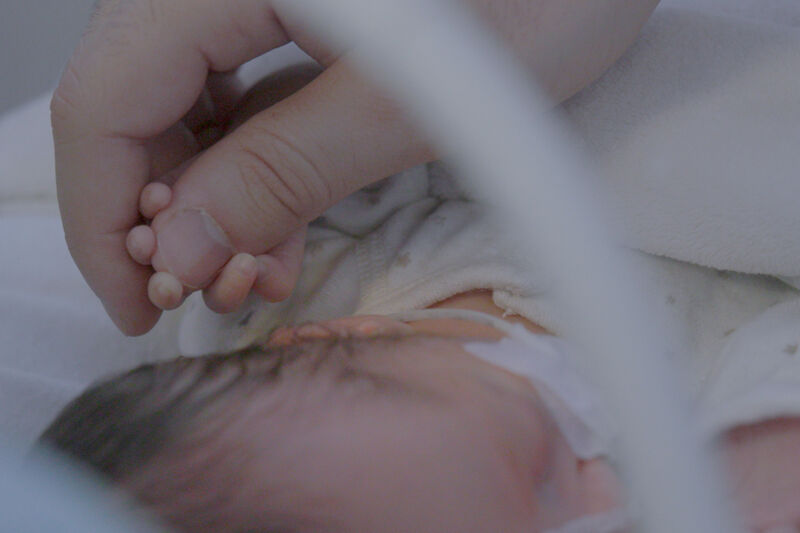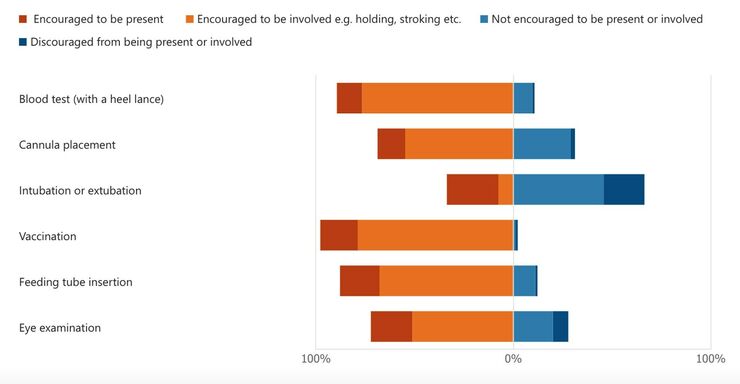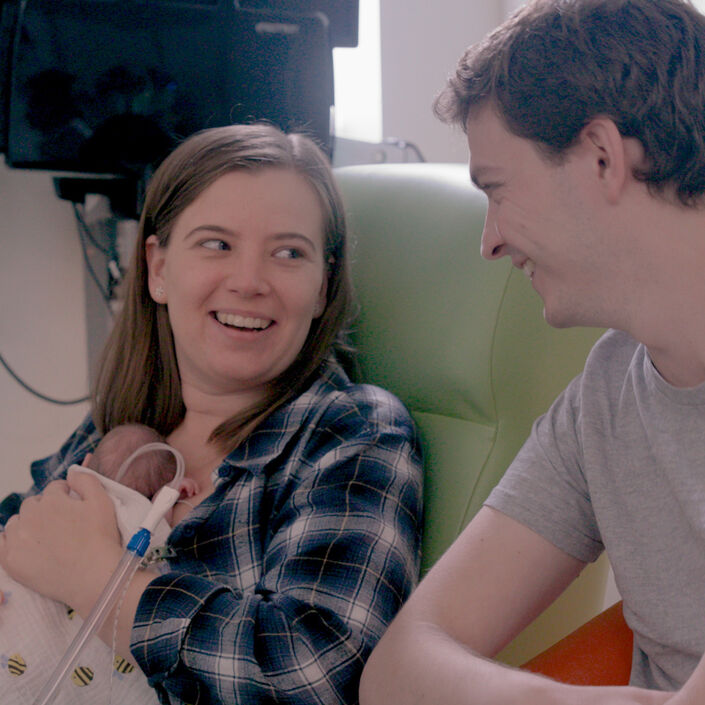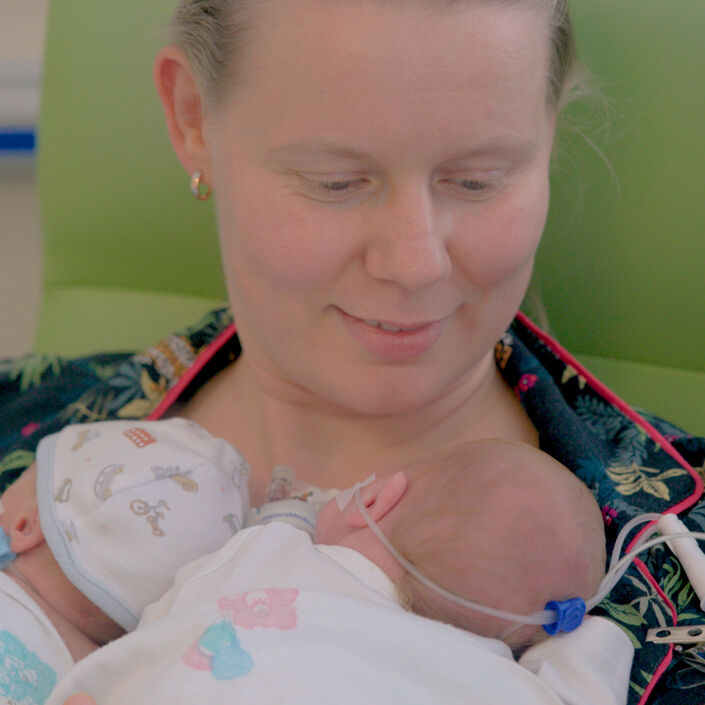Healthcare professionals were asked if in their current roles they introduce parents to the concept of 'parental touch' and teach them how to deliver it, most (49) responded ‘Yes, regularly’, 10 responded ‘Yes, sometimes’ and 1 responded ‘No’.
We asked healthcare professionals about how parents are involved in common procedures. When it came to blood tests, 80% of healthcare professionals responded that parents were encouraged to be involved in the procedure, 11% of healthcare professionals said parents were encouraged to be present, 7% of healthcare professionals said parents were not encouraged to be present or involved and 2% of healthcare professionals said parents were discouraged from being present and involved.
With cannula placement procedures 62% of healthcare professionals responded that parents were encouraged to be involved. 18% of healthcare professionals said parents were encouraged to be present, 17% said parents were not encouraged to be present or involved and 3% of healthcare professionals said parents were discouraged from being present or involved.
When it came to intubation or extubation procedures two-fifths of healthcare professionals (39%) responded that parents were not encouraged to be present or involved. 29% of healthcare professionals said parents were encouraged to be present, 20% of healthcare professionals said parents were discouraged from being present or involved and 13% of healthcare professionals said parents were encouraged to be involved.
When we asked healthcare professionals about parent involvement in vaccinations 77% said parents were encouraged to be involved. 20% of healthcare professionals said parents were encouraged to be present. 2% of healthcare professionals said parents were not encouraged to be present or involved and 2% of healthcare professionals said parents were discouraged from being present or involved.
With feeding tube insertion, healthcare professionals said that 59% of parents were encouraged to be involved in the procedure. 28% of healthcare professionals said parents were encouraged to be present, 11% of healthcare professionals said parents were not encouraged to be present or involved and 2% of healthcare professionals said parents were discouraged from being present or involved.
When asked about parental involvement in eye exams 53% of healthcare professionals said that parents were encouraged to be involved in the procedure. 25% responded that parents were encouraged to be present. 18% responded that parents were not encouraged to be present or involved and 4% said that parents were discouraged from being present or involved.







